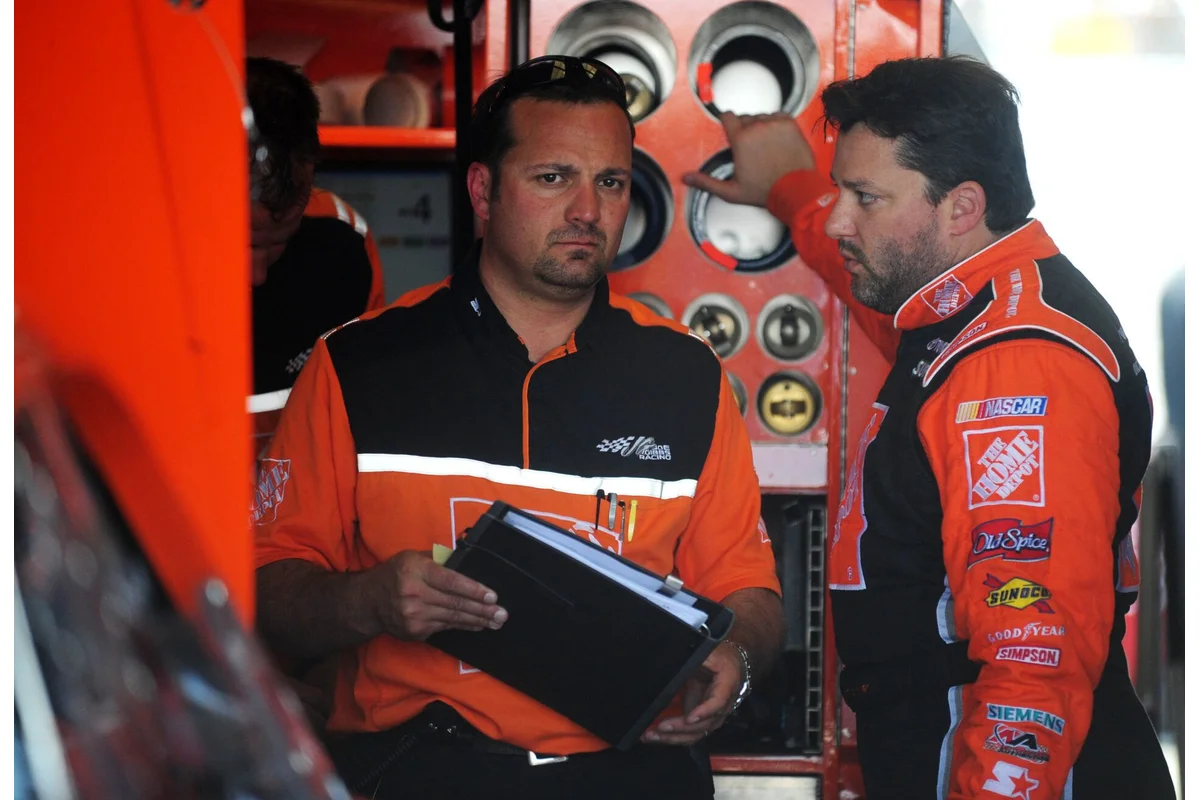The Tony Stewart SRX series controversy has reignited debate across the motorsports community following the leak of private NASCAR management communications. As these messages came to light, opinions divided, with Kenny Wallace—known for his candid relationship with the sport—offering a rare defense of NASCAR amid widespread criticism.
Private Texts Uncover Turmoil Around SRX Series and NASCAR Management
Recent revelations from historic internal messages circulating among NASCAR’s leadership have painted a complex and troubled picture of the organization’s hierarchy. The content included disparaging remarks from Steve Phelps, one of NASCAR’s senior executives, and exposed concerns about the organization’s handling of competition, specifically in relation to the Tony Stewart-co-founded Superstar Racing Experience (SRX) series. These exchanges not only referenced iconic figures such as Richard Childress but also drew attention to how key personalities—like Steve O’Donnell and Denny Hamlin—fit into the ongoing power struggles within stock car racing.
The core of the Tony Stewart SRX series controversy focuses on suggestions that NASCAR sought to protect its market share at any cost, sparking allegations from teams such as 23XI and Front Row Motorsports (FRM) that the sport has engaged in monopolistic practices. Chatter about “putting a knife” in the SRX series only heightened these concerns, intensifying scrutiny of the sport’s leadership and direction.
Kenny Wallace Steps Forward With a Unique View
While much of the racing community has voiced sharp criticism toward NASCAR’s strategy, Kenny Wallace—respected for his tenure both on and off the track—has offered a contrasting perspective. Speaking with Chase Holden on the Motorsport Report podcast, Wallace explained why he understands NASCAR’s actions, even if he does not endorse every decision made. He acknowledged the distress these revelations caused while noting the broader business context that fueled management’s anxieties.
Wallace recalled that at the SRX series’ height, the event aired on ESPN and began to outpace NASCAR’s own Truck and Xfinity Series in ratings. This unexpected surge threatened NASCAR’s negotiating position during talks for billion-dollar media agreements, contributing to the management’s desire to quash competition. As Wallace described, SRX was initially intended as an outlet for retired stars, but as current elite drivers like Denny Hamlin participated, concern grew within NASCAR leadership.
Obviously, SRX has been gone for two years… And the reason they want to put a knife in SRX is because their drivers were hurting them by going over there while NASCAR was negotiating for a billion-dollar-a-year contract. So I understood that one,
Wallace, former NASCAR driver
The SRX Series’ Unintended Threat to NASCAR’s Dominance
The Superstar Racing Experience was established by Tony Stewart, Ray Evernham, George Payne, and Sandy Montag, aiming to spotlight veteran and retired drivers. Ray Evernham was also central to designing the cars, though he exited after the inaugural season, with Donald Hawk assuming the CEO position for the next two years. Over just three racing seasons, SRX’s format caught the attention of fans and competitors alike, drawing big names such as Denny Hamlin and, earlier, Trackhouse Racing’s Justin Marks.
As the SRX series grew, conversations between executives including Steve Phelps and Steve O’Donnell reportedly became more heated, especially following high-profile participants. Parallel developments such as Dale Earnhardt Jr.’s involvement with the CARS Tour highlighted the increased threat posed by alternative racing events gaining traction and potentially challenging NASCAR’s supremacy in stock car racing entertainment.
Financial Strains and the Disappearance of SRX
Despite the interest generated, the SRX series ultimately shut down due to insufficient funding, remaining inactive for two years. The release of internal discussions provides a fresh perspective, indicating the extent to which NASCAR executives viewed the SRX—and by extension, Tony Stewart and his partners—as potential threats to their longstanding dominance. This context brings renewed attention to the legacy and possible return of independent racing series, as well as the tense environment that persists between innovators such as Stewart and established entities like NASCAR.
The unfolding Tony Stewart SRX series controversy is likely to drive further debate on fairness, competition, and transparency in American motorsports. As new revelations surface, fans and stakeholders will be watching for structural changes and reassessments within organizations such as NASCAR and the teams embroiled in recent disputes. The industry’s next steps could reshape the landscape for years to come.
